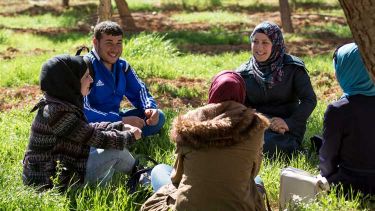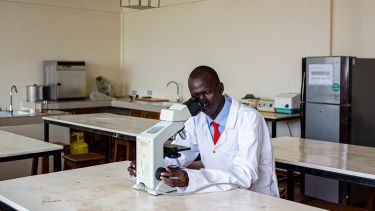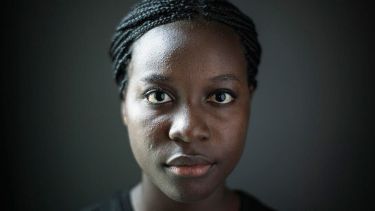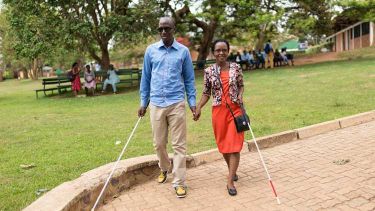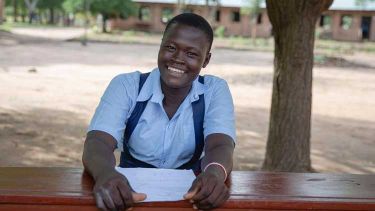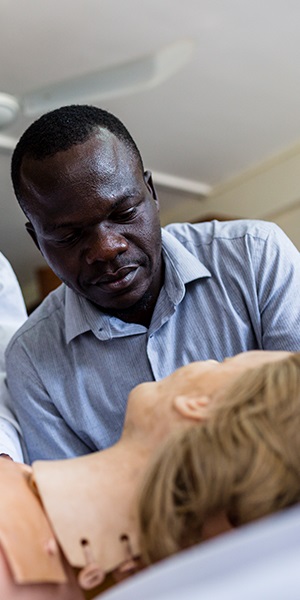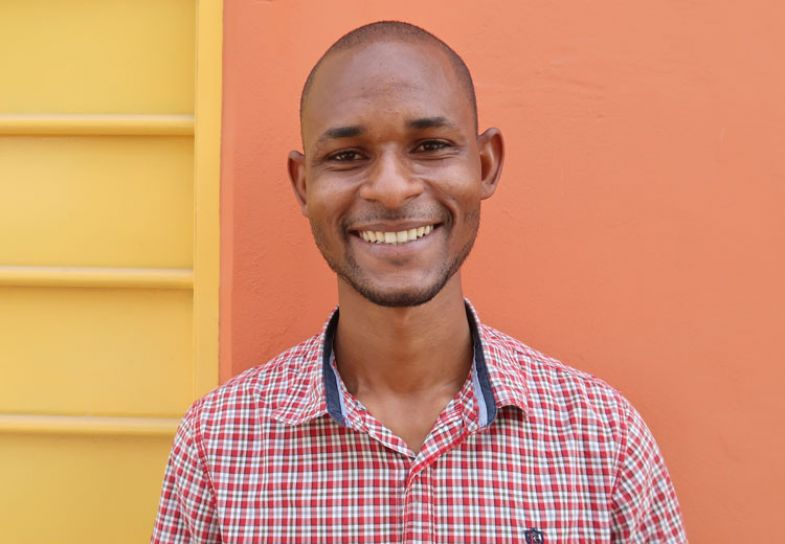
Around the world, access to education has been shown to have far-reaching positive effects not only for displaced people but also for whole communities. A scholarship programme from UNHCR – the UN Refugee Agency has an ambitious goal to support even more refugee scholars with the chance to receive four years of tuition
23-year-old Ousmane was born and raised in Senegal. When his family fled persecution in Mauritania, they had no idea what a future in a new country would involve. His parents lived through violence in their home country and are cautious about speaking out. But for Ousmane, raising awareness about how diversity strengthens communities, is a life-long goal. “I want to raise awareness about inequality and discrimination,” he says.
This year, with support from UNHCR - the UN Refugee Agency’s DAFI scholarship programme, (run in partnership with the German government), Ousmane has started attending university – the first person in his family to do so. He is now in his third year of accounting and finance at the Catholic University of West Africa in Dakar, Senegal, and helps support three siblings and his mother.
For many refugee students, accessing university continues to be an enormous challenge – only 3 per cent of refugees worldwide are enrolled in university, compared to one-third of young people of university age around the world. But education, specifically higher education, for refugees has the ability to bring long-lasting change not only in the lives of individual young scholars like Ousmane but to communities as a whole. “We need to ensure that everyone feels at home. No one should be discriminated against because of their ethnicity or appearance,” says Ousmane.
Ousmane campaigned for a candidate at the student union’s presidential elections and now works with students of different nationalities to put cultural diversity and inclusion at the heart of student politics. At his university, students from across West Africa study side by side. Apart from bringing refugees together, Ousmane is creating the space for young people to speak out about issues that are important to them, as they often fear being excluded or singled out. He believes this conversation is crucial to helping build relationships for refugees in the countries they now live in. “I think part of the solution is for refugees to openly accept their heritage and sensitise others on the need for inclusion and solidarity,” he says.
Others, like 27-year-old Foni, a South Sudanese refugee scholar in Kenya, echo this message. In 2012, Foni won a DAFI scholarship to pursue an undergraduate degree in mass communication at Kenyatta University. At university with students from different backgrounds, Foni was faced with her first experience of understanding and challenging negative preconceptions about refugees. She now advocates for education as a crucial tool for promoting peace and appreciation of cultural diversity.

Together with a Kenyan friend, Foni founded the community-based YEMI Initiative (YEMI in Swahili roughly translates to ‘you are me, and I am you’). YEMI’s aim is to enable the local community, and especially youth, to realise and utilise their potential. YEMI counsels, mentors and inspires through mentorship programmes, career talks and panel discussions.
In the future, Foni plans to continue advocating for refugees while continuing her own education. She dreams one day of returning to South Sudan to actively participate in peacebuilding and development. “The way you react to a conflict is crucial”, Foni says. “If you are able to see yourself in someone, you see they are a human being too. I am you, and you are me.”
To help more refugees access higher education, UNHCR has launched a campaign to fund five refugee scholars with a university education. The crowdfunder will give five refugee scholars the full cost of tuition for four years of university education, as well as associated costs like transport and food. Over the course of the year, UNHCR aims to raise enough for 170 scholars – something that will enable hundreds more scholars to advocate for refugee rights in campuses around the world.
“In a world of inequality, you must either be someone who makes decisions, or is able to influence those who do, to make a change,” says Ousmane.
Find out more about UNHCR’s Aiming Higher campaign and contribute to its crowdfunding efforts.

